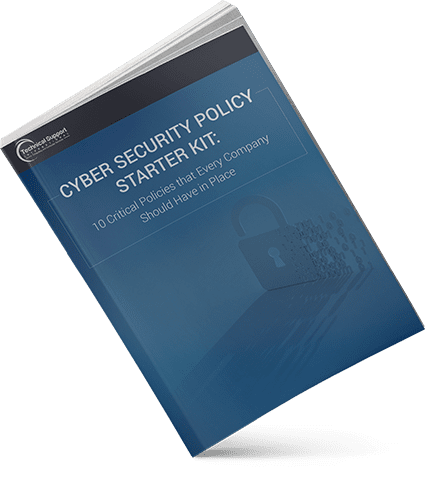Blog
What Is Net Neutrality?
On Thursday, February 26, 2015, in a 3-2 vote, the United States Federal Communications Commission (FCC) voted to approve the newest version of the Open Internet Order, which essentially ensures that Internet Service Providers (ISPs) “provide access to content and applications on an equal basis,” and prohibits ISPs from charging companies for quicker delivery times.

While “Net Neutrality” has been a huge buzz word for the last few months, this is a conversation that’s been brewing for nearly a decade – and it’s an important one to be had. The decision by the FCC has dictated how much – and how little – control ISPs can have over Content Providers. It has also determined how the Internet should be regulated and how much authority the FCC and the Federal Government have over it.
How Did All of This Start?
To begin, it’s important to know that in a 2005 ruling between National Cable & Telecommunications Association v. BrandX Internet Services, the United States Supreme Court upheld a determination by the FCC to classify the Internet as an “information service,” rather than a “telecommunications service.”
Later, in 2008, a group of Comcast customers noticed that their service was being interrupted/severely slowed down when using certain peer-to-peer networking sites. They brought this to the attention of the Associated Press, who confirmed that they also experienced the same issue while using Comcast. The group of users then filed a complaint with the FCC against Comcast, taking up the issue as to whether or not an ISP had the right to censure certain content, or intentionally interfere with the upload/download times from different Content Providers.
The FCC – citing the Communications Act of 1934 – told Comcast to stop censuring Content Providers, and ruled that the Internet should be open and free of any intentional content blocking or interference from the ISP. However, in April 2010 the United States Court of Appeals found in favor of Comcast, citing the 2005 case where the FCC has classified the Internet as an “information service,” and said that the FCC therefore did not have the authority to regulate ISPs.
As a result, on December 23, 2010 the FCC released the Open Internet Order, which laid down three orders for ISPs:
– Transparency from ISPs;
– Prohibited blocking by broadband ISPs; and
– Prohibited unreasonable discrimination of Content Providers by broadband ISPs.
In 2011 Verizon – and separately, MetroPCS (who later dropped their case) – filed suit against the FCC, challenging the Open Internet Order on the basis that it violated their Constitutional Rights. The Court ruled on the case in 2014, and upheld the first order (transparency) while vacating the second and third orders (blocking and unreasonable discrimination), stating that the FCC had relinquished the right to regulate the Internet because it cited the Communications Act of 1934 (which dealt only with “Common Carriers” – utilities such as telephone services) as the basis for the Open Internet Order and that it had yet to reclassify the Internet as a Common Carrier.
All of that brings us to today.
To rectify the situation, the FCC held a vote to apply a portion of the Communications Act of 1934 to the Internet, reclassify it as a Common Carrier, and re-write the Open Internet Order, thereby giving themselves jurisdiction over regulating the Internet.
On February 26, 2015, the FCC – in a 3-2 vote – approved the modified Open Internet Order – popularly referred to as Net Neutrality.
Why Is This Important?
A common analogy used to describe Net Neutrality is that of a highway. When content is put on the Internet (the highway), it’s essentially divided into packets (the cars). In order for a consumer to view the content, the packets must make their way across the Internet and to user’s computer. When there’s a lot of information crossing the Internet (or a lot of cars on the highway) things get congested, and some content will get delivered more slowly. With an Open Internet, there is no way to determine what content will be delivered more slowly – it’s just luck of the draw. In fact, during high traffic times it’s possible that all content will be delivered more slowly as the packets vie for space.
There were arguments both for and against the fast/slow lane method, and the issue became politically charged – which is part of the reason it received so much attention. Ultimately, however, the FCC decidedagainst allowing a fast/slow lane scenario. The Open Internet Order requires that ISPs provide equal, unfettered access to all Content Providers, and prohibits ISPs from charging them for the ability to gain better access. This means that all websites will be treated equally – Netflix and Google will have the same priority as your neighbor’s bird-watching blog when it comes to making their way across the Internet.
The FCC has released a statement with assurances that they do not plan to regulate the Internet as a commodity with taxes and tariffs, and that their only mission is to ensure that the Internet will be “fast, fair, and open.”
At the end of the day, Net Neutrality is a great thing for consumers, small businesses, and ISPs alike. Content Providers without large budgets to pay for their content to make it into the “Fast Lane” won’t need to worry that their content won’t be displayed fairly. Additionally, the web presence of political and minority groups – or any Content Provider that has potentially controversial materials – won’t need to worry that an ISP will block their content in any way.
Sources:
- http://en.wikipedia.org/wiki/Net_neutrality
- https://www.dailywireless.org/internet/net-neutrality-history-present-impacts-and-future/
- http://www.fcc.gov/openinternet
- http://transition.fcc.gov/Daily_Releases/Daily_Business/2015/db0226/DOC-332260A1.pdf
- http://www.usatoday.com/story/tech/2015/02/24/net-neutrality-what-is-it-guide/23237737/
- http://en.wikipedia.org/wiki/Verizon_Communications_Inc._v._FCC_%282014%29
Categories
- Backup & Disaster Recovery
- Business Operations
- Case Studies
- Cloud Services
- Cyber Security
- Employee Spotlight
- Finance & Budgeting
- Glossary Term
- Governance & IT Compliance
- Managed Services
- Mobile Device Management
- Network Infrastructure
- NIST 800-171 & CMMC 2.0
- PCI
- Podcast
- Project Management
- TSI
- Uncategorized
- vCIO
Cyber Security Policy Starter Kit:
10 Critical Policies That Every Company Should Have in Place


